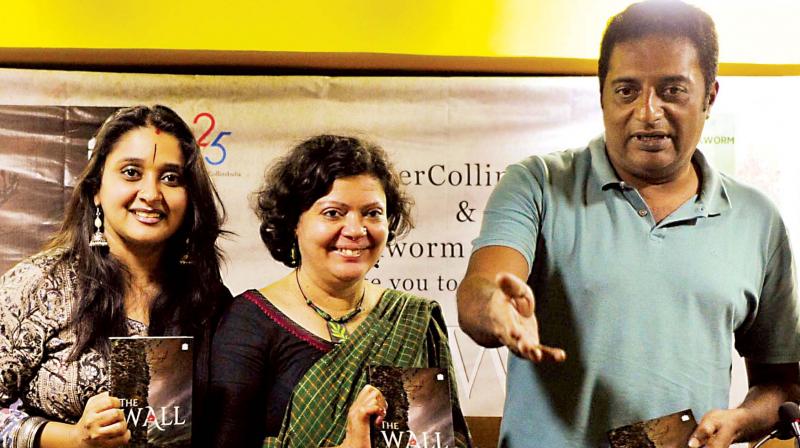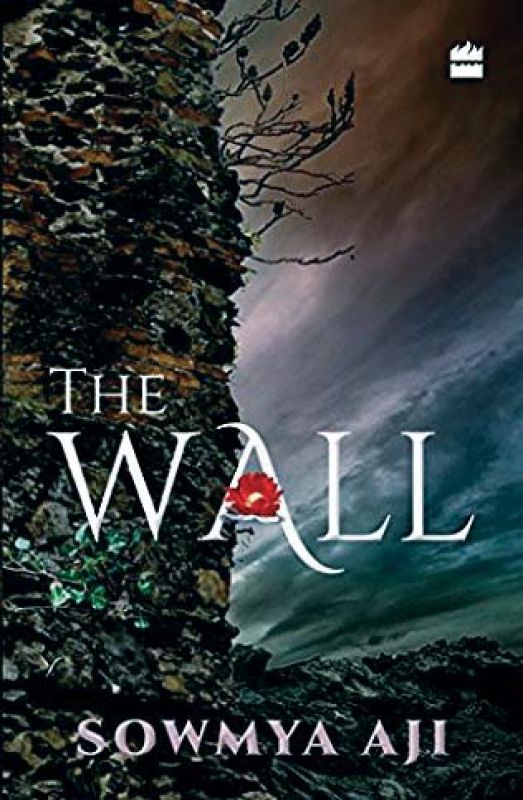The Wall, a Taalamaddale of Romance & Erotica
A story that took her two decades to write, the central theme of the The Wall is the legend of Kamadeva.

Q&A with Soumya Aji
Bengaluru: Author and political journalist Sowmya Aji describes her latest book The Wall - her third - as a heady mix of mythology, horror, romance and erotica. A story that took her two decades to write, the central theme of the The Wall is the legend of Kamadeva, the god of love, told through the eyes and ears of the women in an unnamed village in Karnataka.
When you decided to write the book, what was its concept? Did it change through the years?
I have written and re-written this book 27 times over the last 20 years. It began as a parable of Karnataka's ethos and its connect to the prosperity and fertility of the land and its people. Kamadeva to me is the God of all people, the source of life itself. To me, there is no creation if it is not preceded by Kama, which can rage from base lust to desire to love, in its various shades. That is how the book started but it evolved through various stages into a cultural, social and political commentary of the state also and is now a blend of all elements including local legends, myths and classical literature.
 Sowmya Aji Author of The Wall
Sowmya Aji Author of The Wall
Give us a idea on the story line and your characters.
There are lots of stories within stories, while each of the characters is interchangeable with the others. The central character is a mysterious man named Annaiah, whose arrival at an unknown village changes its very existence and character. Annaiah can become Kamadeva himself or Siva the destroyer or the feared concept of the bogeyman, Gumma. We also have Ajji, the narrator, who passively watches all the action and several strong-minded and fiercely passionate women whose actions take forward the story line. If in traditional tales, the Gumma's servants are women, in the real action in the book, the women dictate what happens next, not Annaiah or any of the men.
How much do you identify with the rural setting that is used in the story?
I am a city-born, city-bred girl, but at heart, I think I am a village girl from the other backward castes. This strong sense of an alternative identity for myself is at the heart of this book and in that sense, this book is the real me.
Kannada words have been used in the book generously…
How can you reflect the ethos of Karnataka without Kannada? Kannadatana is as essential to this book as joie de vivre is to the French. I have made no attempt to impose Kannada unnecessarily. Indeed, it was a major challenge to write in good English for a national/global audience, but retain the Kannada flavour. I felt, to understand and express Kannada sensibilities, use of these words were necessary. I don't think they intrude on the reader, I feel they intrigue and add to the reader's knowledge of a people and a culture.
What are the underlying themes in the book?
The subtext to the whole book is the relationship between Prakriti and Purusha, a very essential part of Indian philosophy, culture and tradition. To me, all the women in the book, whether mortal or goddess, are embodiments of Prakriti, reflecting nature and nurture. All the men are Purusha, the male essence in various dimensions.
The story is essentially based on mythology. It seems as if more and more writers today are tweaking mythology and repackaging it.
Mythology is basically meant to be repackaged to suit the narrative of the day. I firmly believe in that. We have a tradition in the Malnad region of Karnataka called taalamaddale, which takes the old Mahabharata and Ramayana tales and within their frame, all of the current day's politics, social, cultural and economic issues are debated to great effect. What I have sought to do in The Wall is taalamaddale in writing. Other writers have been evolving their own paths through our myths and coming up with their own ways of interpretation. To me, the celebration of our culture is turning it into a work of art, that is open to all vistas and dimensions.
What was your process while writing this book?
I've written the book in several patches, sometimes pages on end, sometimes just a sentence. Sometimes every night, sometimes nothing for months on end. I'm not a disciplined writer. I write when I just have to write and get it out. That makes it a labourious, wayward and an extremely unpredictable process. The discipline comes only after the first gush, when I rewrite, polish and craft the work, draft after draft. And yes, I work best against a deadline, as is typical of the journo.
